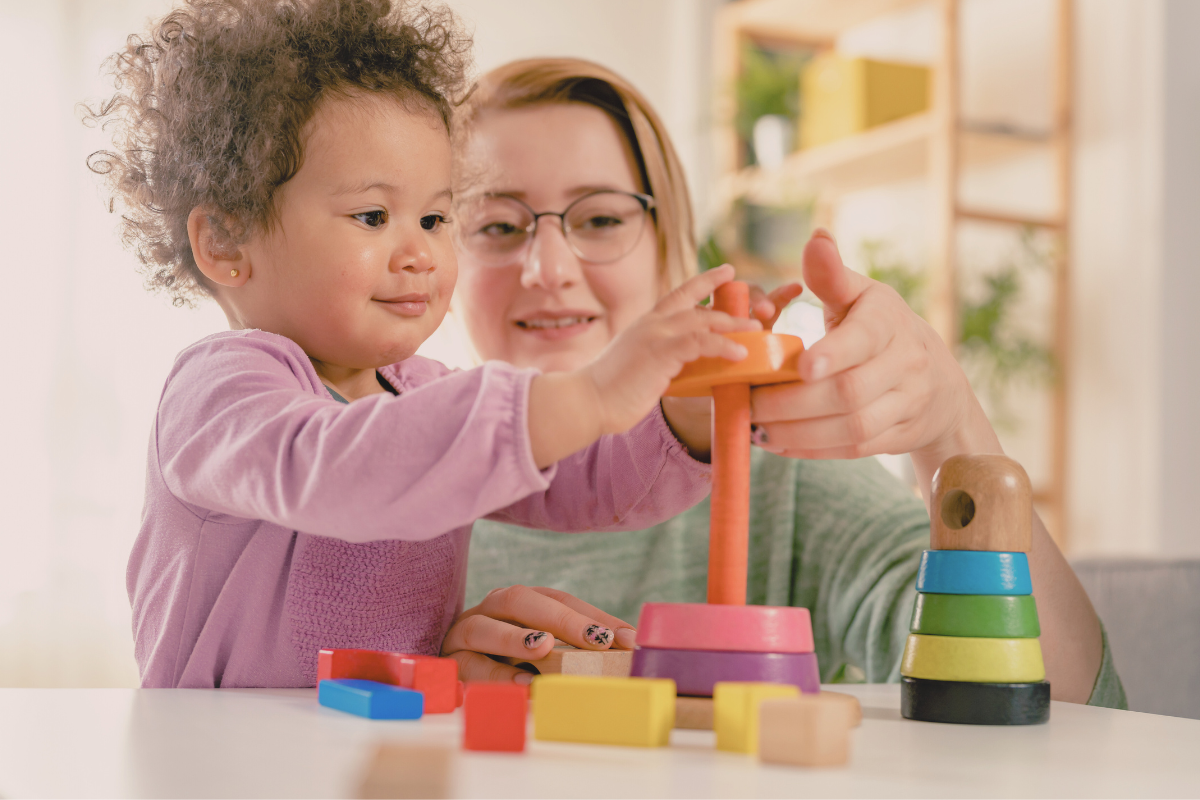Learning Through Play: What is Play-Based Learning?
Children are naturally curious, exploring the world around them with an innate sense of wonder. This curiosity is a powerful tool for learning, and when harnessed through play, it becomes a dynamic method of education.
Learning through play isn't just a concept; it's a philosophy that embraces the idea that children learn best when they are having fun. From building blocks to imaginative games, play offers endless opportunities for cognitive, social, and emotional development.
In this article, we'll unravel the magic of learning through play. We'll dive into the benefits, explore different types of play, and provide tips on how to encourage playful learning at home. Whether you're a new parent or an experienced one, there's always something new to learn about how play can shape your child's growth. Get ready to see playtime in a whole new light!
What Is Learning Through Play?
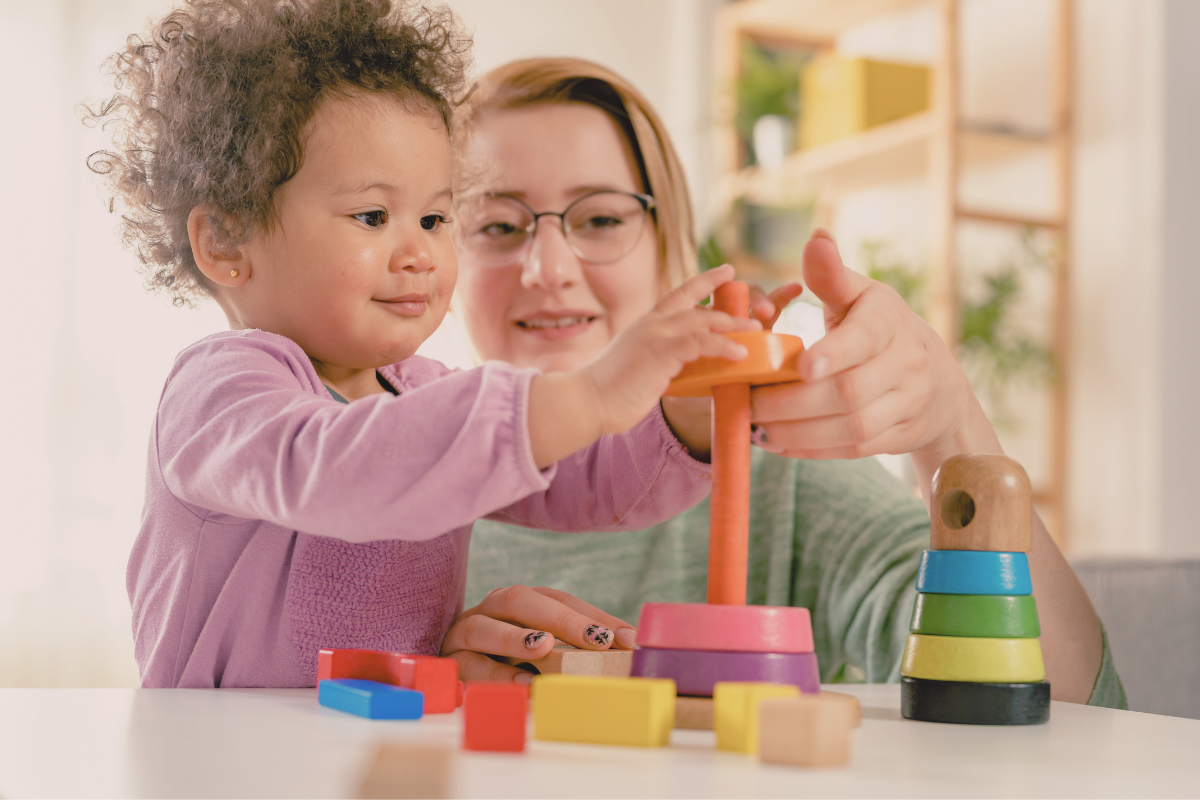
Learning through play is a teaching approach that emphasizes the importance of play in a child's development. It involves activities that are enjoyable and voluntary, fostering exploration, imagination, and creativity.
Play is not just a break from serious learning; it is serious learning. Children develop essential skills such as problem-solving, social interaction, and emotional regulation - all through playing.
This approach recognizes that when children are engaged and having fun, they are more likely to absorb and retain information, making learning both effective and enjoyable.
The History of Play-Based Learning
The idea of learning through play has deep historical roots.
Friedrich Froebel, a 19th-century educator who founded the kindergarten movement, was one of the first to recognize the importance of play in child development. Froebel’s educational philosophy underscored play as fundamental to fostering creativity and learning.
In the 20th century, the work of developmental psychologists Jean Piaget and Lev Vygotsky further shaped the understanding of play in education.
Piaget’s theories on cognitive development suggested that children learn through interaction with their environment, while Vygotsky emphasized the social aspects of learning, citing that play is a collaborative process facilitated by social interaction. These insights laid the foundation for modern play-based learning approaches.
How Effective is the ‘Learning Through Play’ Approach?
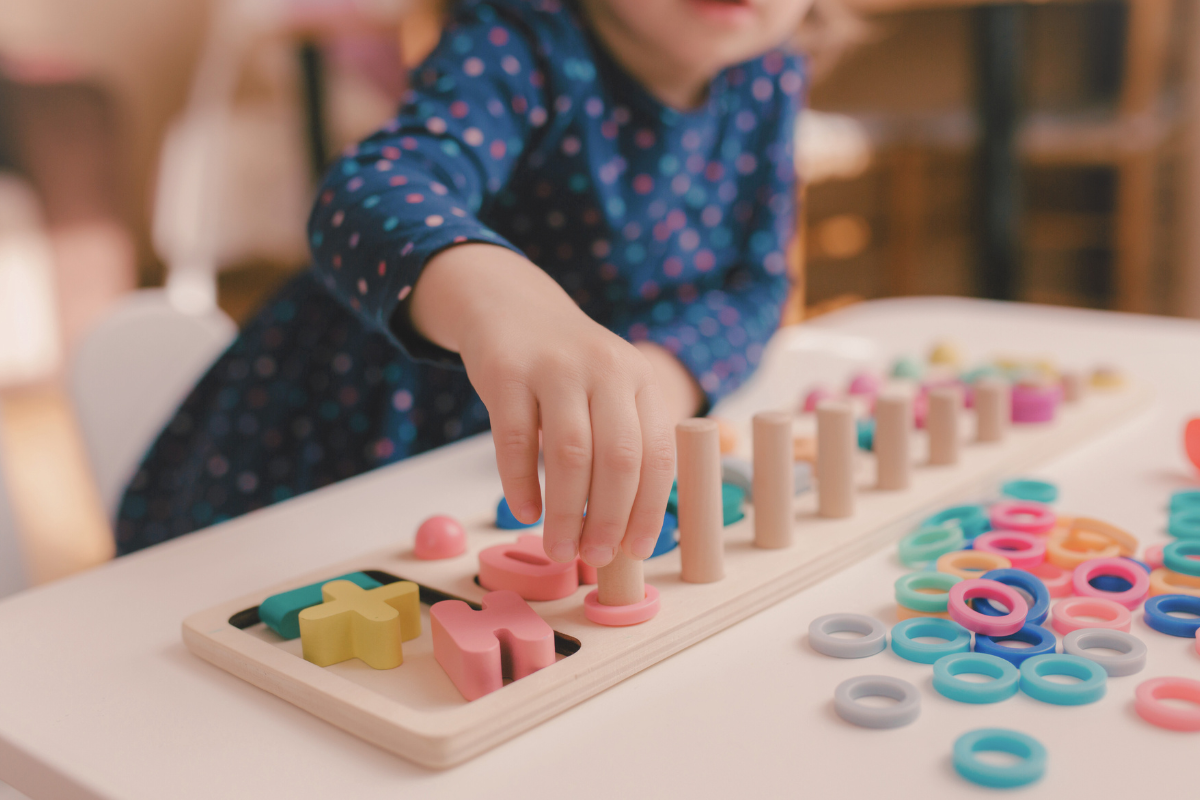
Studies show that children develop up to 80% of their brain functions by the age of three. By the time they hit five years old, they’ve already developed up to 90%. This means that everything they do is critical to their development during this time.
Contemporary research supports the benefits of learning through play. Multiple studies have highlighted how play-based learning enhances cognitive and social outcomes in early childhood education. For instance, reports from UNICEF and the LEGO Foundation provide practical frameworks and case studies demonstrating the successful implementation of play-based learning in various educational settings.
The historical evolution and ongoing research confirm that integrating play into educational practices is essential for fostering holistic development in children.
So, as you can see, play-based learning is not just an effective educational tool but also an essential element in nurturing well-rounded, creative, and socially adept individuals.
Benefits of Learning Through Play
Learning through play wouldn’t be a popular approach if it didn’t come with a multitude of benefits. Studies have proven time and time again that this method of learning comes with holistic benefits, helping child development in more ways than we can think of.
Cognitive Development
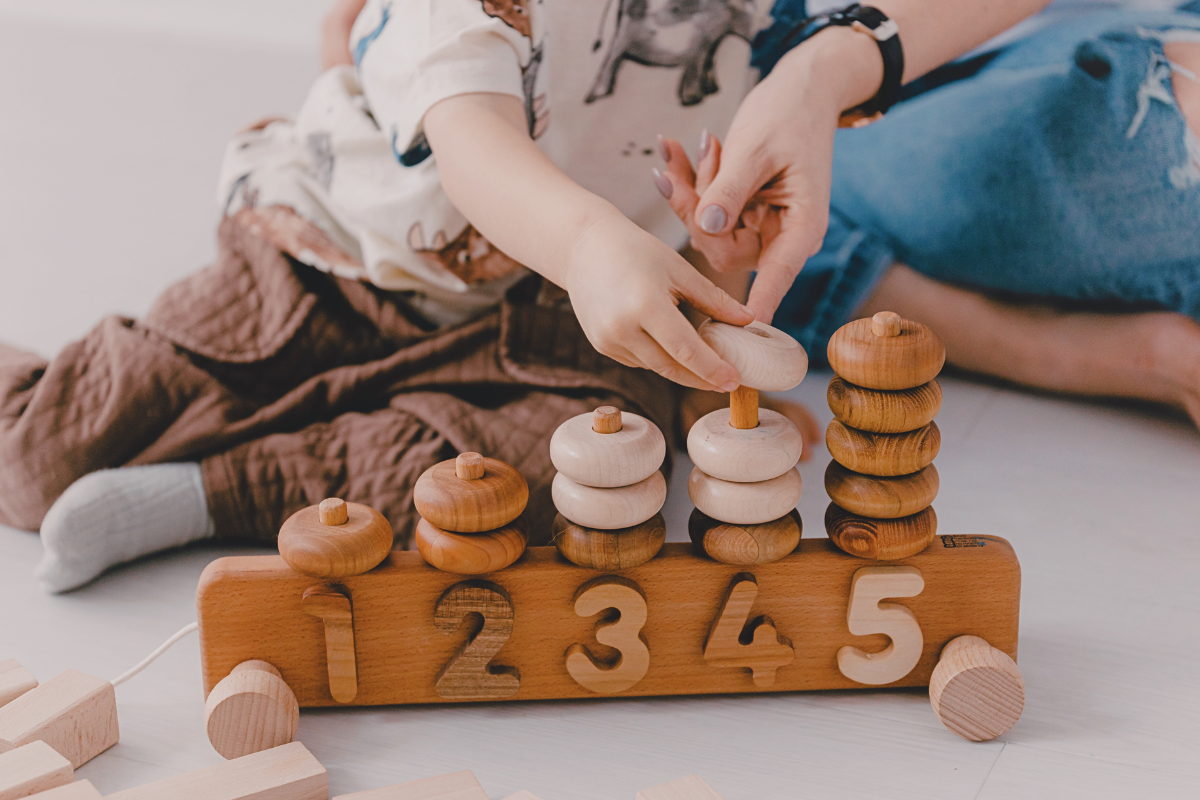
The first benefit that learning through play provides children is enhanced brain development.
Play-based learning is a powerful tool for developing a child’s cognition. Engaging in play allows them to explore their environment, experiment with new ideas, and solve problems creatively. Research shows that play, particularly through a play-based program, also enhances memory, critical thinking skills, attention span, and executive functioning in preschoolers.
Through imaginative play, children develop creative thinking and language skills by inventing dialogues and scenarios. This kind of play also promotes symbolic thinking in children between 2-4 years of age, a critical aspect of early childhood development.
Meanwhile, a 2013 study explored the effects of physical activity like playing on academic performance. It was found that when children play, they tend to perform better in mathematics and spatial reasoning tests. As children learn to manipulate objects in their hands, they also learn about shapes, sizes, and patterns, which lays the foundation for more complex mathematical concepts.
Additionally, play is scientifically proven to encourage curiosity and scientific thinking in young kids. When children engage in activities like mixing water and sand, they explore cause and effect, developing hypotheses and testing them.
These are just some examples. Through such interactive experiences, play-based learning nurtures a lifelong love of learning and discovery.
Social and Emotional Growth
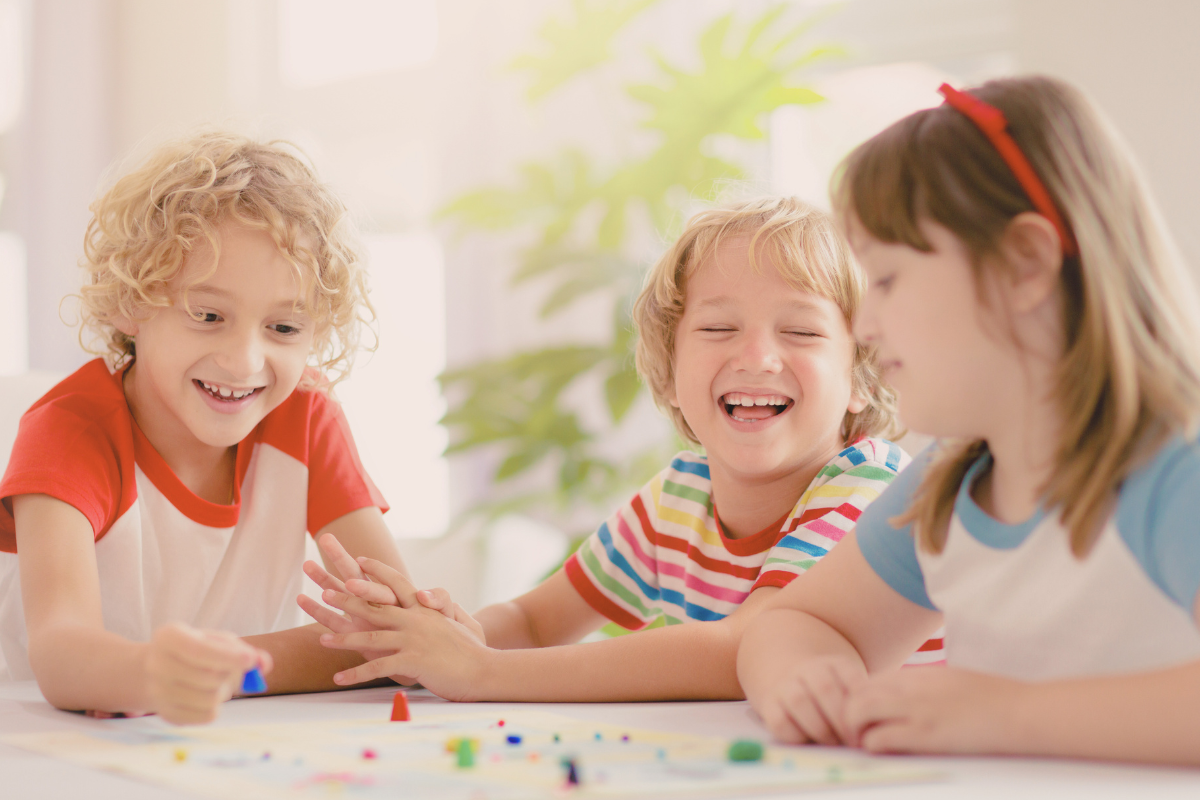
Play-based learning significantly contributes to social emotional learning in children.
Through play, children learn social skills that allow them to navigate social interactions, build relationships with other children, and develop empathy.
Cooperative play activities, such as building a fort or playing a team game, teach children how to communicate effectively, share resources, and negotiate roles. In fact, according to studies, children who engage in group play show improved social skills and are better able to manage conflicts.
Emotional regulation is another critical benefit of play. When children engage in role-playing activities, they often act out various scenarios that help them understand and manage their emotions.
For instance, pretending to be a doctor or a parent allows children to explore feelings of responsibility, care, and empathy. This type of play helps them process real-life experiences and emotions in a safe and controlled environment.
Lastly, play is also essential for mental health, as it helps children build resilience and coping skills. It even provides a natural outlet for stress and anxiety. Engaging in playful activities can elevate mood and reduce stress hormones, creating a sense of well-being and security. Not to mention, play-based learning prepares children for the social complexities of adulthood.
Physical Development

Physical development is another significant benefit of play-based learning.
Active play, such as running, jumping, and climbing, enhances gross motor skills and overall physical health. The same 2013 study from above showed that children who regularly engage in physical play have better cardiovascular fitness, stronger muscles and bones, and a healthier weight.
Fine motor skills are also developed through play-based learning. Activities like drawing, building with blocks, or threading beads improve hand-eye coordination and dexterity. These skills are essential for daily tasks such as writing, dressing, and feeding oneself.
A study published in 2021 found that children who participate in fine and gross motor activities show better coordination and agility.
Unsurprisingly, physical play also promotes sensory development. Activities that involve different textures, sounds, and movements help children integrate sensory information, enhancing their perceptual skills. For example, playing in a sandbox or on a balance beam requires children to use their sense of touch, balance, and proprioception.
Outdoor play exposes children to nature, providing opportunities for exploration and adventure. Nature play is proven to support physical development by encouraging diverse and spontaneous movements.
By promoting physical activity, play-based learning helps children build a strong foundation for a healthy lifestyle.
Types of Play in Early Childhood Education
Understanding different types of play and their educational value can help you support your child’s development effectively. Here’s a look at four key types of play:
Free Play
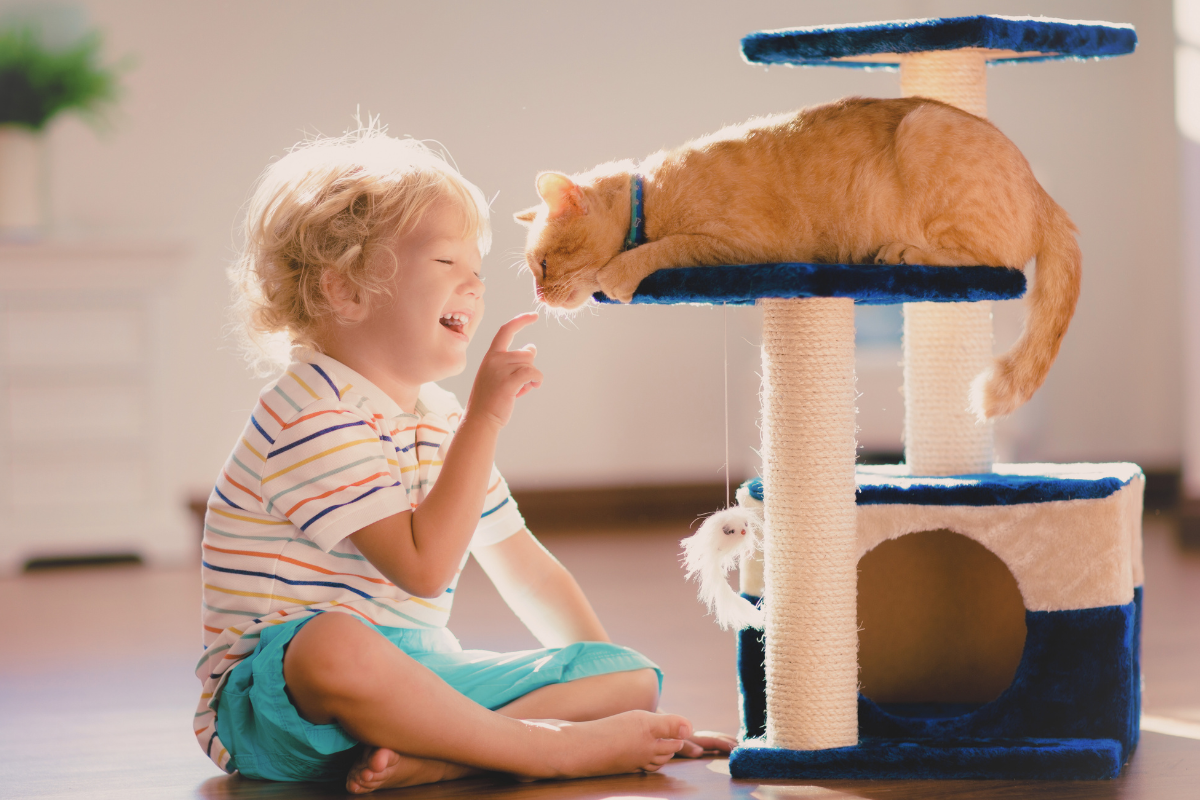
Research shows that free play fosters emotional development and promotes decision-making skills, autonomy, and problem-solving abilities in kids. That’s because free play is unstructured and child-directed, allowing children to use their creativity and imagination without adult interference.
Toys like Poppyseed Play’s customizable Balance Beams and Stepping Stones are perfect for encouraging free play. Children can create their own games and challenges, enhancing their cognitive and motor skills in a fun and engaging way.
Structured Play
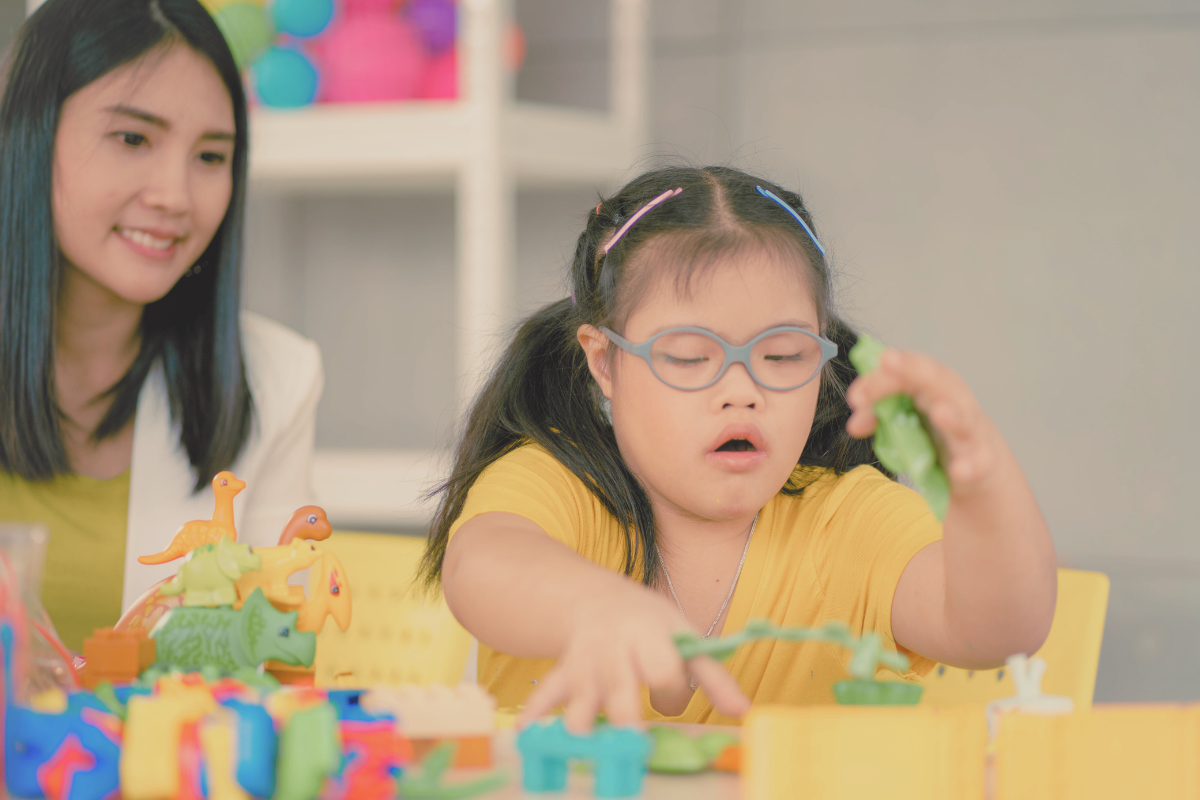
Structured play helps children develop discipline, follow rules, and achieve set objectives. Structured play involves activities that have specific goals and are often guided by an adult. This type of play includes puzzles, board games, and educational toys.
This is backed by a 2022 study revealing that structured play activities enhance children’s academic readiness and social interactions.
Imaginative Play
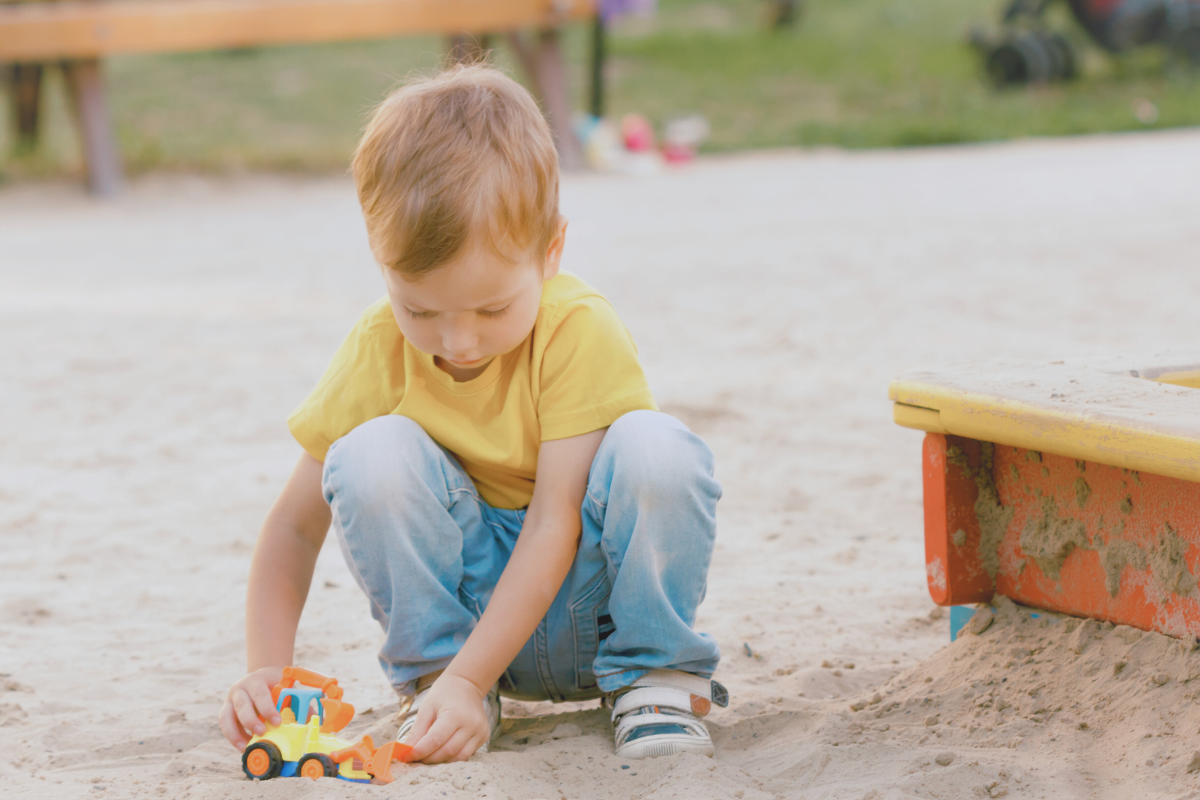
Imaginative play, or pretend play, allows children to explore different roles and scenarios, enhancing their creativity and social understanding. Studies show that imaginative play is crucial for language development, emotional regulation, and empathy.
For instance, Poppyseed Play’s Climbing Arches and Balance Boards can transform into castles, mountains, or any setting your child imagines, providing endless possibilities for imaginative adventures.
Physical Play
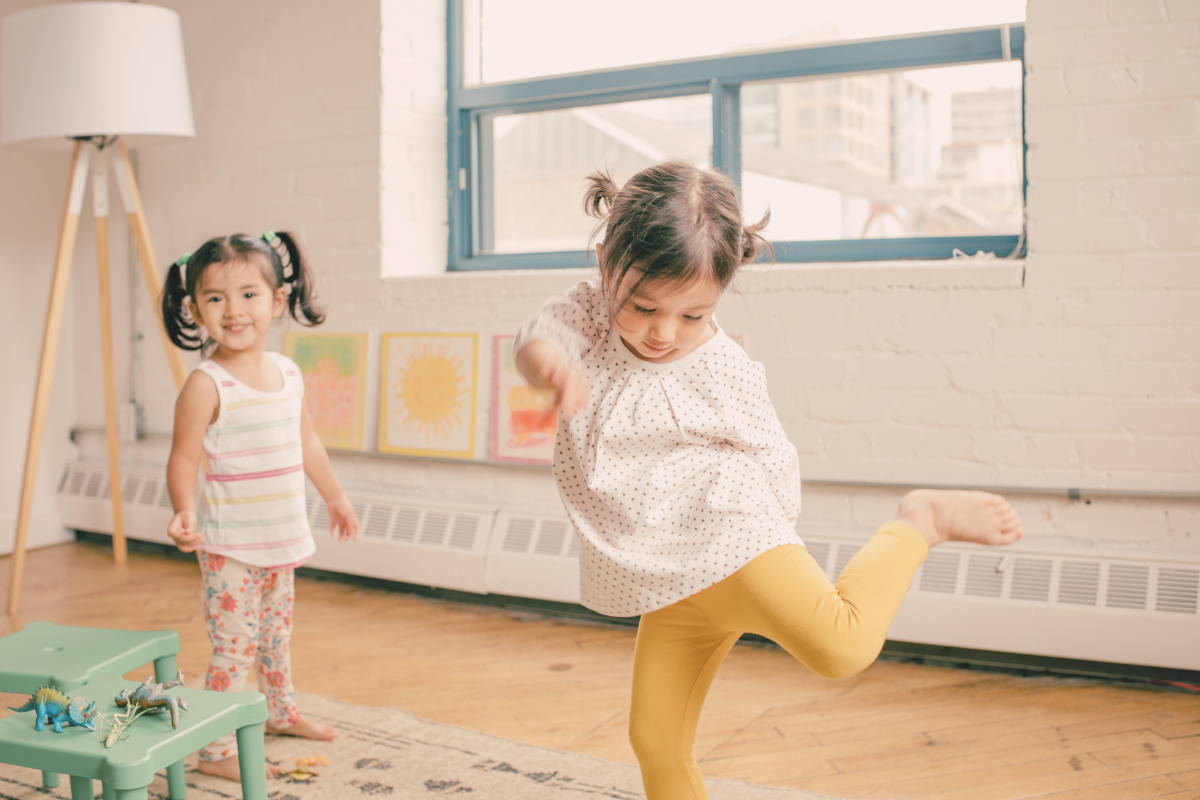
Physical play involves activities that promote physical fitness and coordination, such as running, jumping, and climbing. Research highlights that physical play is essential for healthy growth, motor skill development, and overall physical health.
Products like our balance boards and stepping stones encourage children to engage in active play, improving their balance, strength, and agility. Additionally, outdoor play with these items enhances sensory development and provides exposure to nature.
Helping Your Child with Learning Through Play
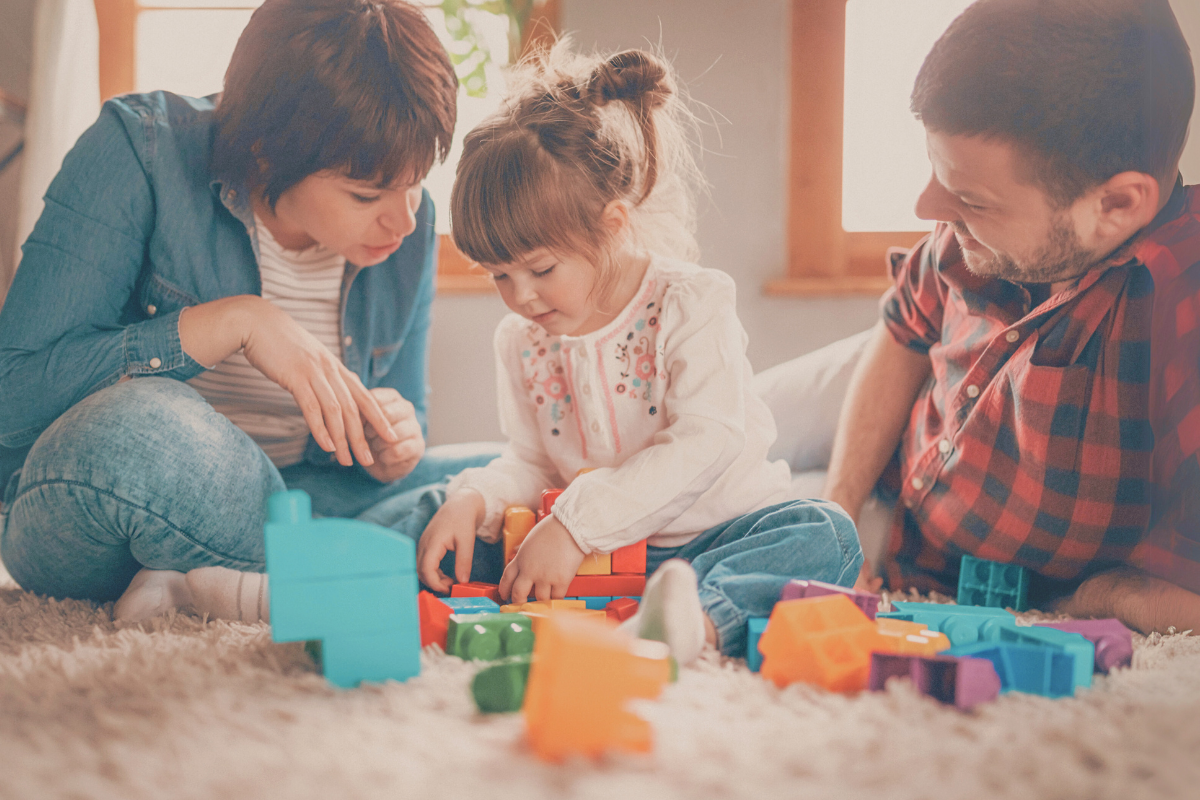
Supporting your child's learning through play can be both fun and rewarding. Here are some tips and tricks to help you make the most of playtime:
-
Create a play-friendly environment. Set up a safe, inviting space where your child can explore different toys and activities freely. Include a variety of materials like blocks, art supplies, and sensory items.
-
Join in the fun. Engage with your child during play. Follow their lead, ask open-ended questions, and encourage their creativity. This not only enhances learning but also strengthens your bond.
-
Rotate toys and activities. Keep playtime interesting by regularly introducing new toys and activities. Rotate them to spark curiosity and prevent boredom.
-
Incorporate educational toys. Choose toys that promote learning and development, such as puzzles, building sets, and games that encourage counting, sorting, and problem-solving.
-
Encourage outdoor play. Outdoor activities like running, climbing, and exploring nature boost physical development and provide sensory experiences. Visit parks, playgrounds, or even your backyard.
-
Use everyday moments. Turn daily routines into playful learning opportunities, including indoor activities. For example, involve your child in cooking to teach measurements and follow instructions.
-
Allow free play. Give your child ample time for unstructured play. This encourages imagination, decision-making, and independence.
Final Thoughts
Learning through play is not just about fun – it's a vital part of your child's development. By incorporating various types of play, you can help them grow cognitively, socially, emotionally, and physically.
Remember, the best kind of play is one that your child enjoys and learns from. And hey, if you find yourself stepping on a balance beam instead of a Lego at 3 AM, at least you know your child's development is right on track!
